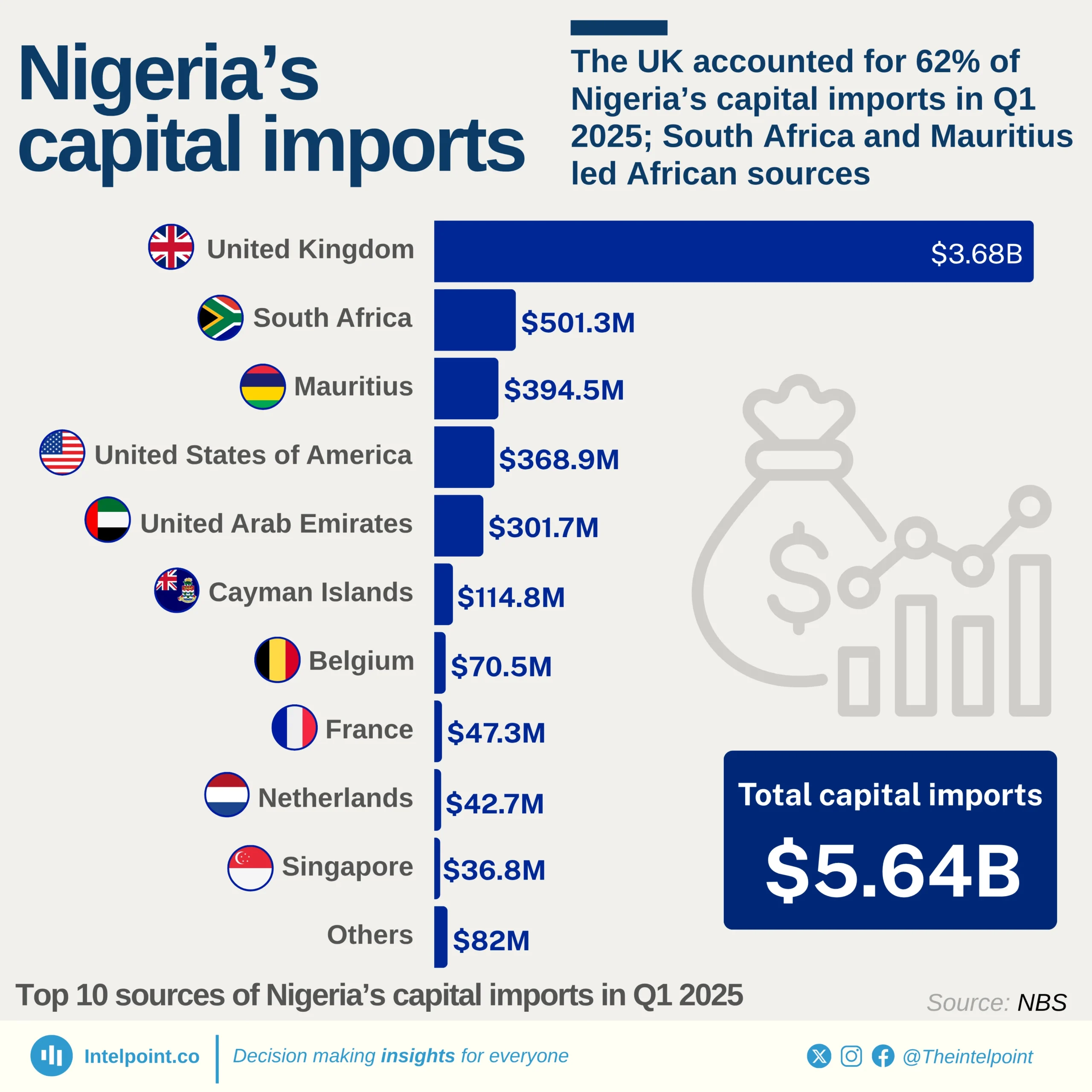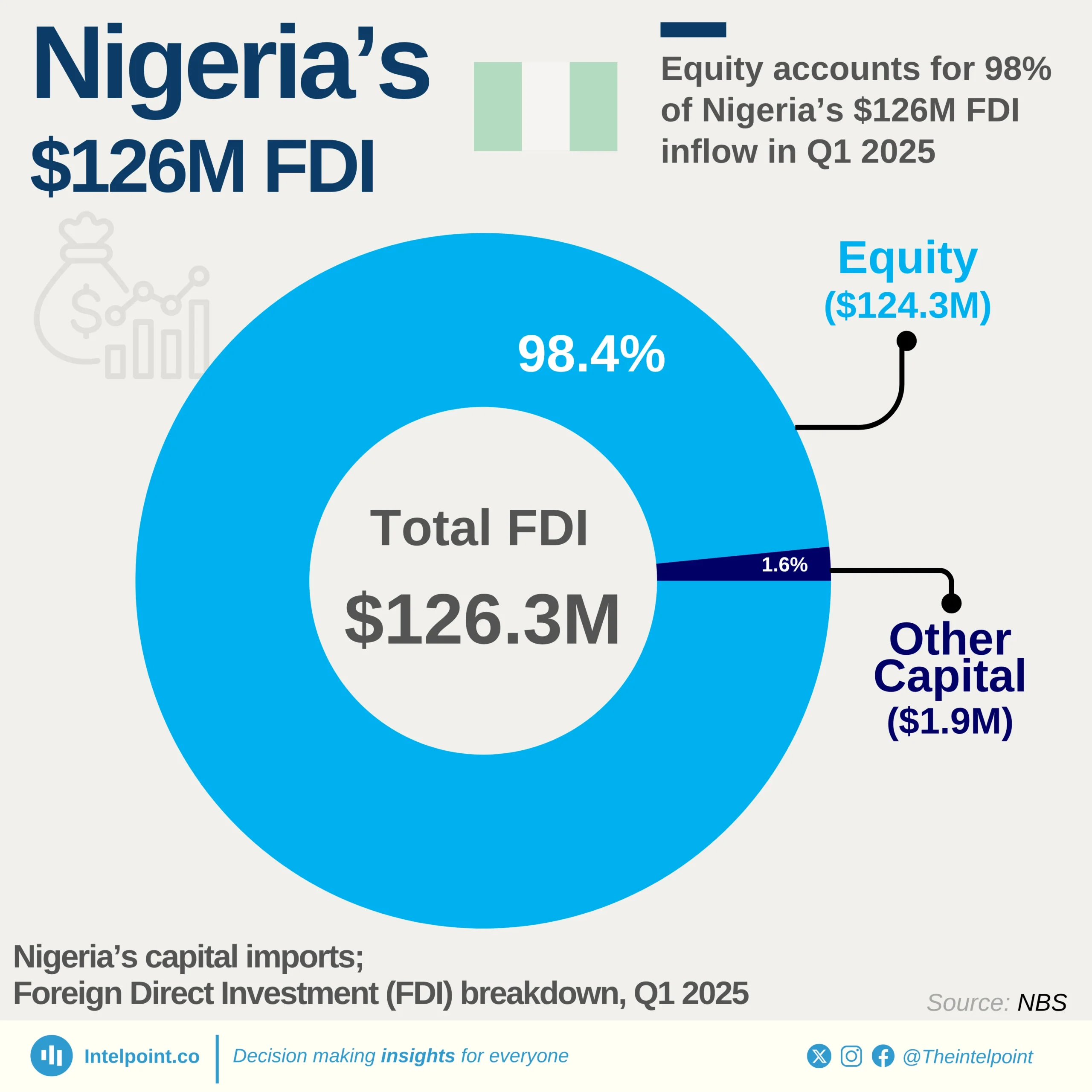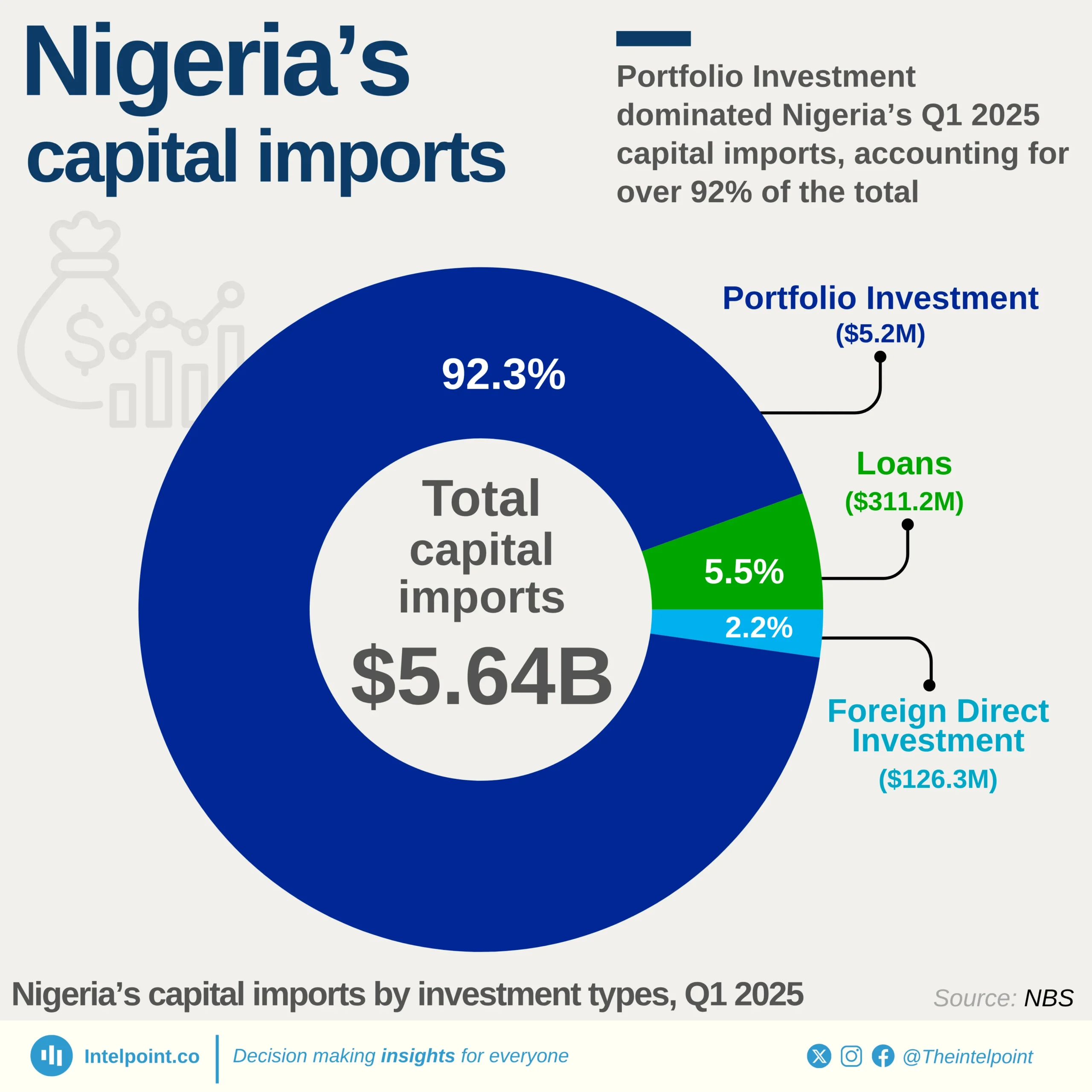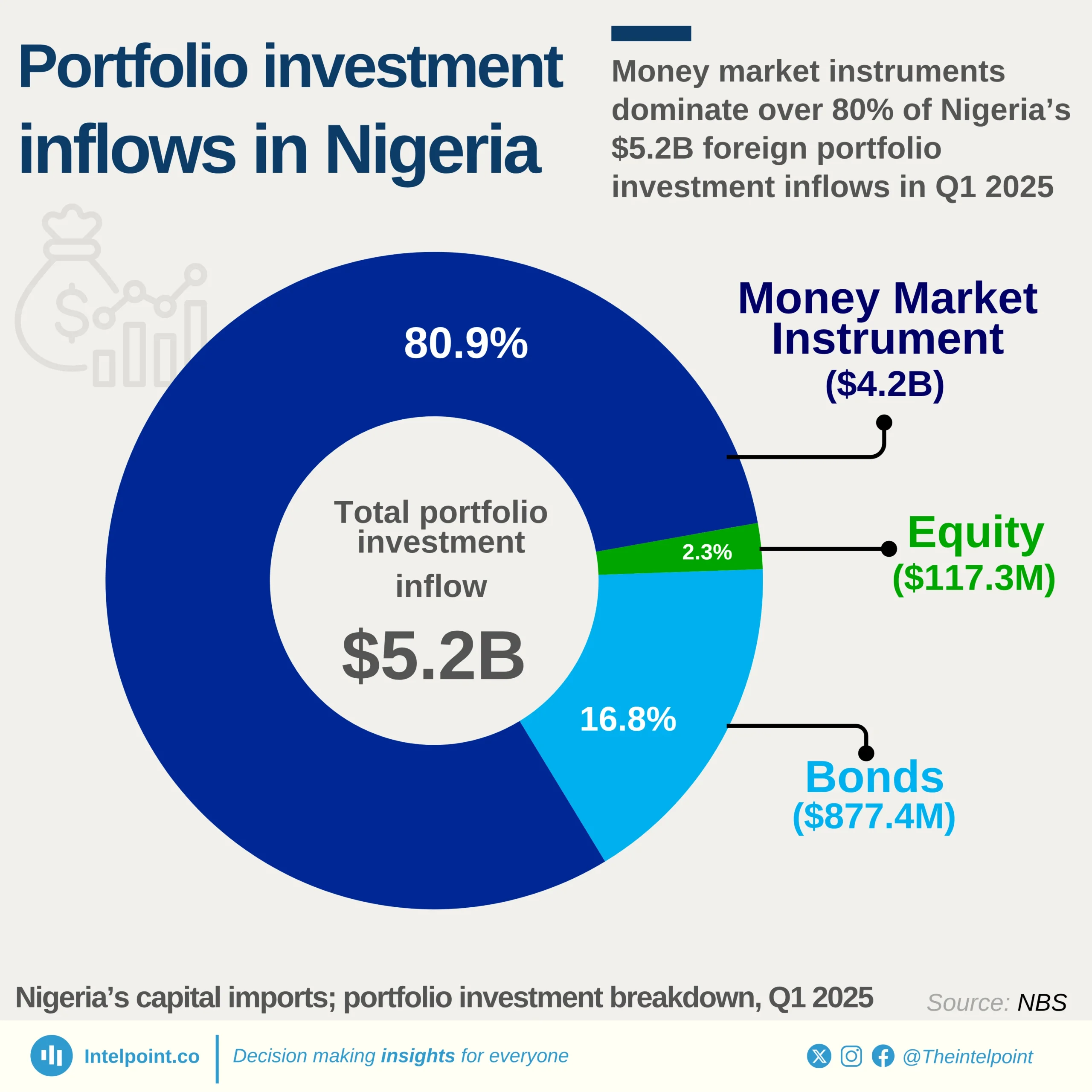Nigeria’s capital importation has experienced a turbulent 12-year run. In 2013, the country attracted $21.3 billion in capital inflows, but by 2024, this figure had dropped to $12.3 billion, a 42% decline. The most significant drop, 60% in 2020, came after 2019’s record high of $24 billion. From 2020 to 2023, inflows continued to deteriorate, reaching a low of $3.9 billion. However, 2024 brought a strong reversal, with capital imports rebounding by 215%, hinting at renewed investor confidence or major financial transactions boosting inflows.




